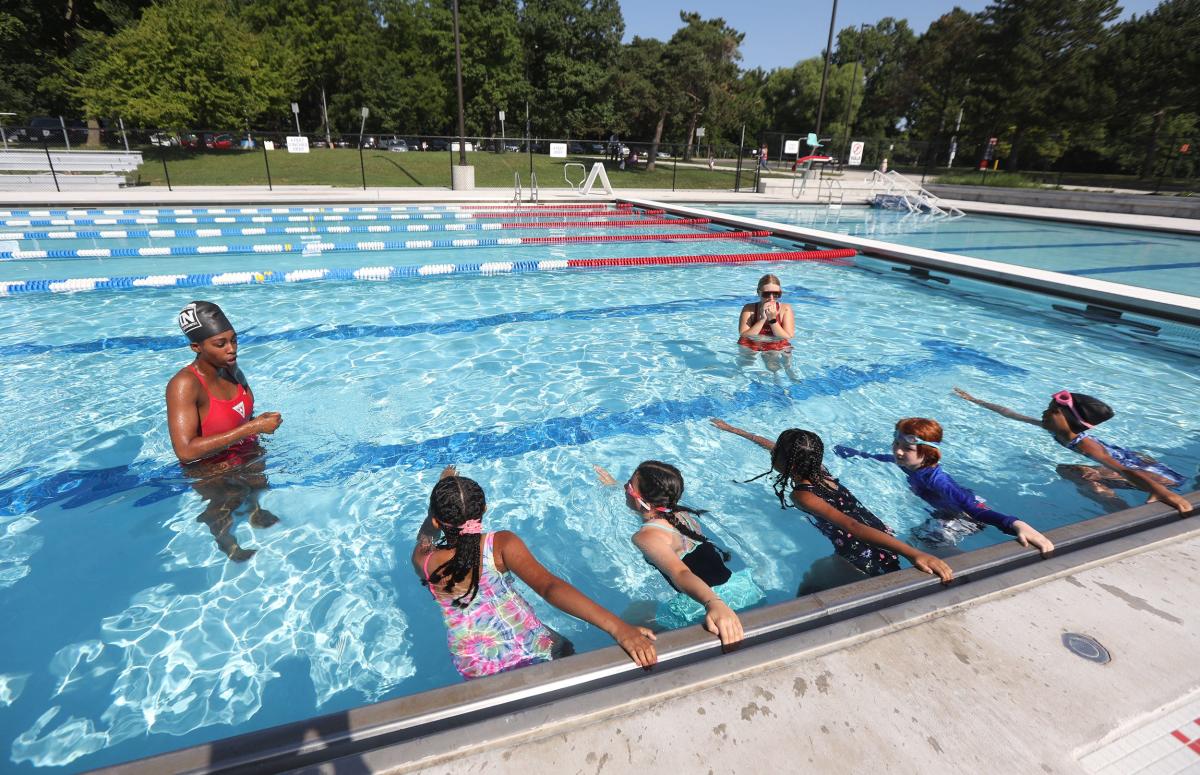Gov. Kathy Hochul took that plunge in her $233 billion budget proposal and state lawmakers were receptive. Though the final budget is still being negotiated in Albany, the uncontroversial pool plan appears likely to move forward after some haggling about its parameters.
The quest is partly about widening access to recreation and exercise, particularly in underserved communities where pools are scarce. But it comes with a sobering public health aim: to curb drownings, a leading cause of death among children.
“There have been too many stories, especially here in the city, of young people who did not know how to swim,” Hochul said as she announced the plan at a Manhattan pool in January. “They go off one day and never come home and their families are just absolutely ripped apart.”
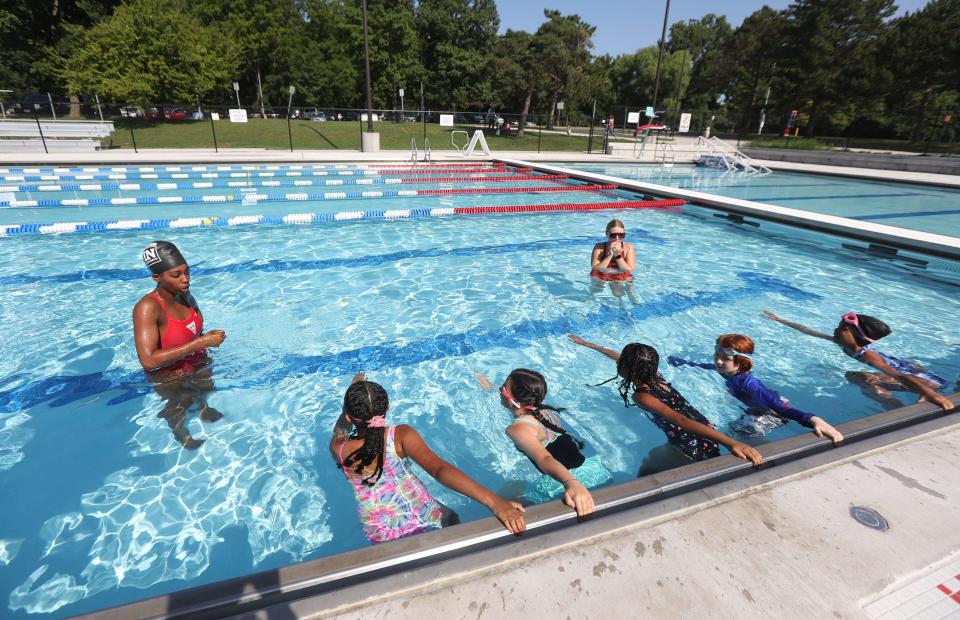
Providing more public pools with lifeguards and swim lessons is meant to reduce those fatalities. Another motivation is to offer spots to cool off in urban areas that are prone to extreme heat.
Hochul outlined three separate funding streams that municipalities and nonprofits could tap through competitive grants:
-
$60 million to build or renovate public pools in high-needs areas
-
$60 million for floating pools on waterways
-
$30 million for pop-up pools to deploy in neighborhoods with no other swimming sites nearby.
Count Ari Freedman-Weiss among the future applicants, if the grant program comes to fruition.
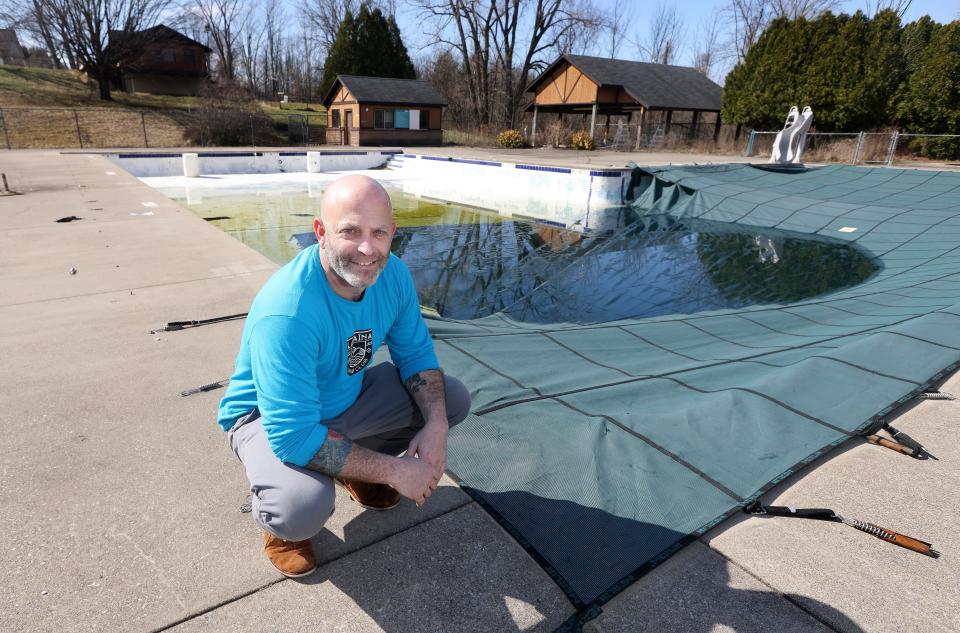

He’s the aquatics director at the Schottland Family YMCA in Pittsford, part of the YMCA of Greater Rochester network. He also runs a nonprofit that’s hoping to reopen a closed summer camp in Honeoye Falls -— a project that involves costly pool renovations and the possible construction of a second pool.
Freedman-Weiss was among the potential grant seekers who answered the state’s call in February for informal proposals to gauge interest. He proposes to turn the former Camp Sisol into a year-round operation with two enclosed pools, a project that could cost up to $2.4 million with the inclusion of a seasonal dome over the existing pool. The revived site would be open to all community members.
He cheered the state push for more pools, and for more swimming and water-safety classes.
“As a long time aquatics director and swim coach, I couldn’t agree more with the importance of these goals,” Freedman-Weiss said. “Swimming is great for recreation and fitness and should be made available to as many people as possible.”
Building housing in NY NY bill would clear path for religious groups to build affordable homes on their land
How do the floating pools work?
Floating pools are the brainchild of a New York City nonprofit called +POOL, which has been developing the technology since 2010. Its 9,500-square-foot, cross-shaped pool can be placed in city waterways, with its walls acting as filters to remove contaminants and bacteria.
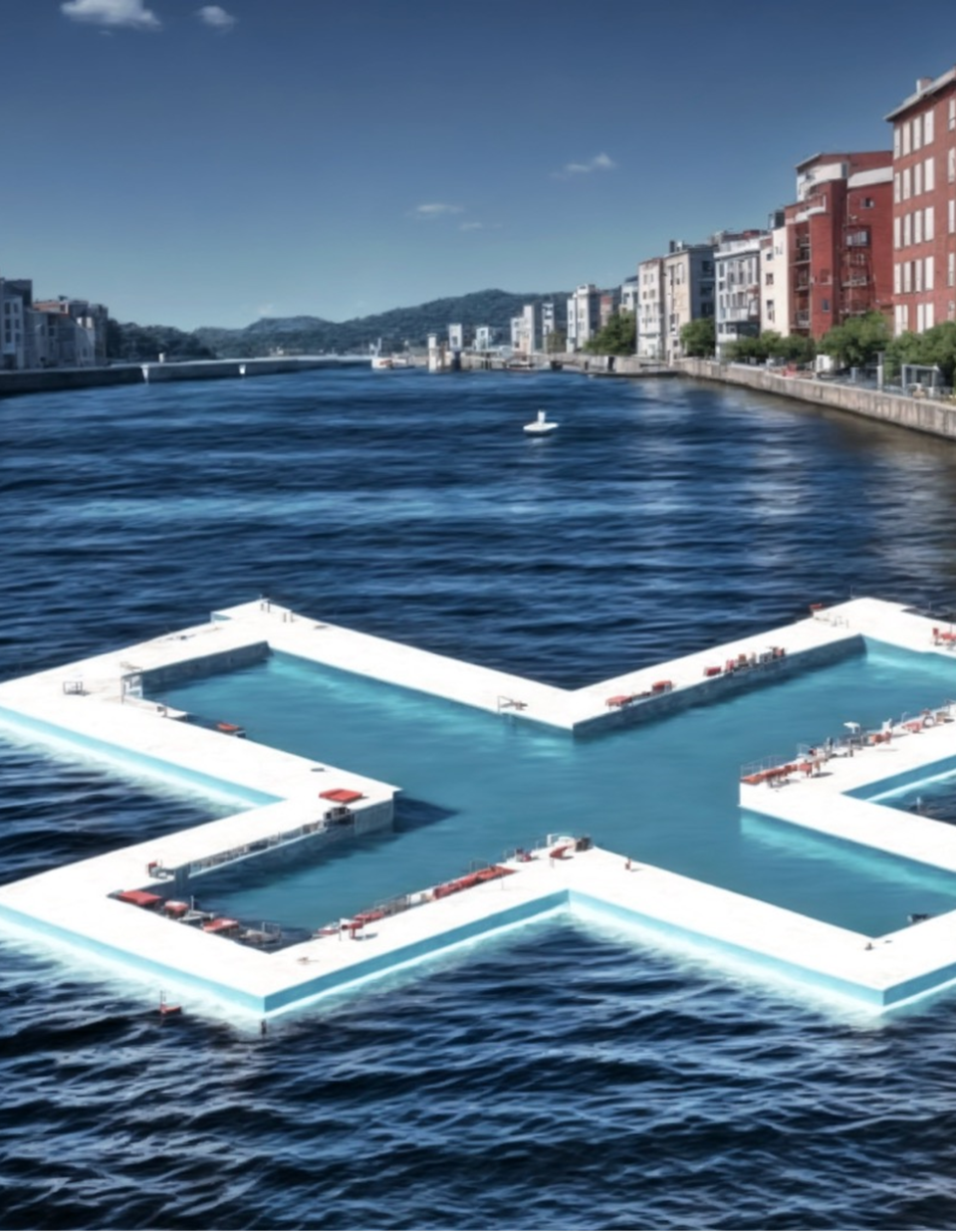

A 2,000-square-foot test version is set to be installed on the East River this year, funded by $12 million from the state and $4 million from New York City.
Yonkers might like one of its own. William Serratore, the city’s director of sustainability, told the USA Today Network-New York that the administration is considering a floating pool on the Hudson River, possibly at the site of new park that will be built in the Ludlow area of southeast Yonkers.
Installing it would cost an estimated $1.5 million to $2 million, and maintaining it would run another $500,000 to $750,000 a year, a recurring cost that could be subsidized with grants, Serratore said. Construction would take about a year, which means the pool could open in 2026 or 2027 if the city proceeds with it, he said.
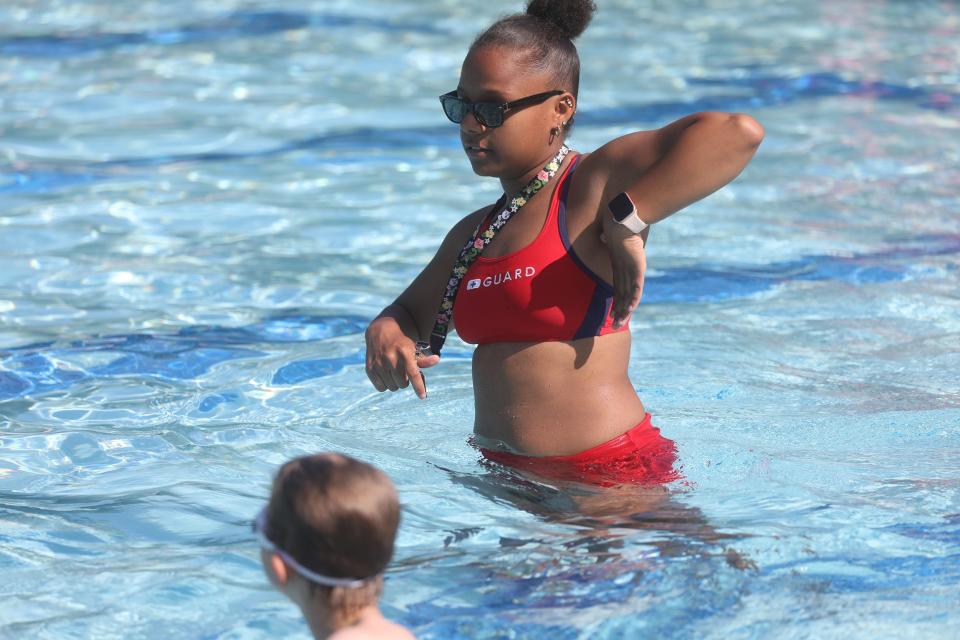

Yonkers Mayor Mike Spano applauds Hochul’s plan to fund projects like that.
“There are not enough swimming opportunities in our City for the amount of children that we have,” he said in an emailed statement. “The west side can even be considered a pool desert, and we want to create access for all our kids and their families.”
What else is in Hochul’s pool plan?
Hochul’s proposal — dubbed the New York Statewide Investment in More Swimming, or NY SWIMS — also includes a grant program that will enable municipalities to hire more lifeguards by covering their wages, making it possible to expand pool hours and increase staffing for lessons. The funding amount wasn’t specified.
In addition, she wants to:
-
Fund more water-safety classes for kids at state-run pools and beaches
-
Provide transportation to bring kids to swimming lessons
-
Expand the use of SUNY college pools across the state by making them available for community swim classes
-
Offer incentives for SUNY students to become lifeguards.
Swimming needs: To prevent drowning, Albany must invest in swimming infrastructure and lessons
Hochul’s budget summary put the total cost of NY SWIMS at $160 million, suggesting the funding for lifeguards and other steps besides the pool grants would total $10 million. State officials declined to provide funding details when asked.
Democratic majorities in both the Senate and Assembly endorsed Hochul’s pool proposal in their own budget plans, with a couple slight adjustments. The Assembly wants to ensure at least $60 million is reserved for municipal pool projects in underserved areas. The Senate asked to broaden the program to include natural swimming areas.
Apart from NY SWIMS, Hochul also budgeted $446 million for state-owned parks and pools. Among the plans: restoration of Rockland County’s Lake Sebago Park, a popular site inside Harriman State Park that has been closed since Hurricane Irene damaged it in 2011. The goal is to reopen it to swimmers in 2027.
Spending plans: NYS Budget: Hochul proposes $2.4B for asylum seeker housing, services in $233B budget plan
What are the stats on drownings?
About 4,000 Americans die from accidental drownings each year, according to the federal Centers for Disease Control and Prevention. It’s the leading cause of death for children ages 1 to 4 and second leading cause of unintentional injury death for children ages 5 to 14, behind car crashes.
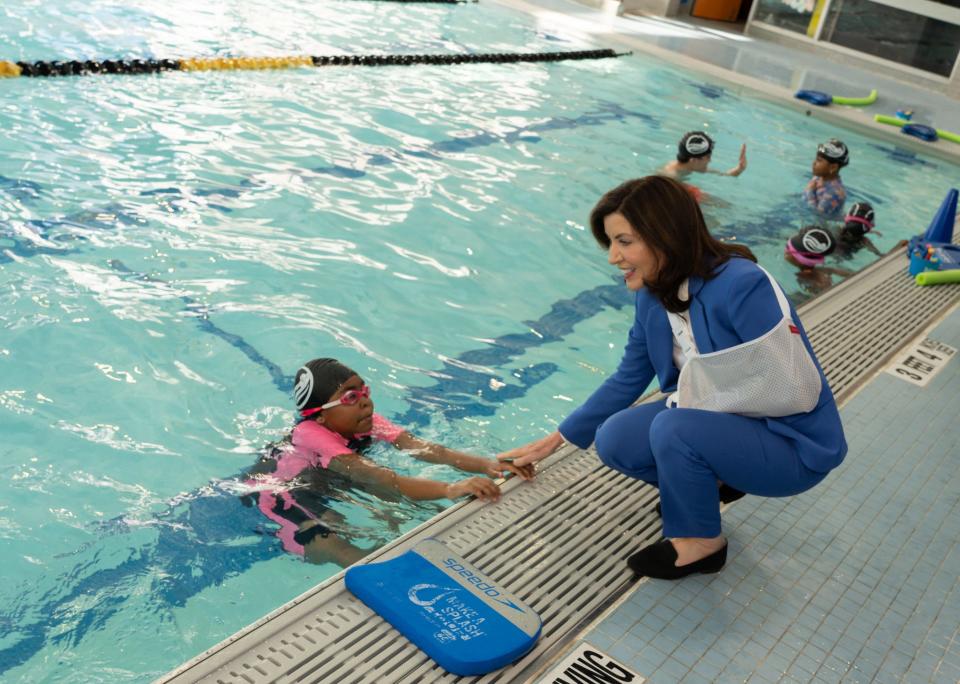

Most drowning deaths for younger kids take place in home pools. Among those 5 to 14, 40% of drowning deaths take place in lakes, oceans and other natural water bodies, and 30% occur in pools.
In New York, 151 residents died from accidental drowning in 2021, the most recent annual tally by the state Department of Health.
Chris McKenna covers government and politics for The Journal News and USA Today Network. Reach him at cmckenna@gannett.com.
This article originally appeared on Rockland/Westchester Journal News: Will more pools curb drownings? Inside NY’s safe swimming sites push
